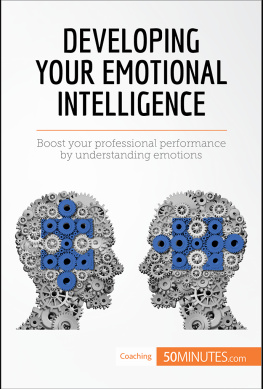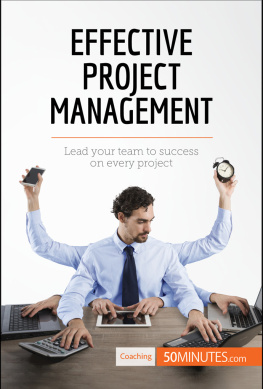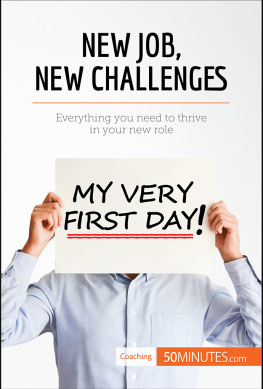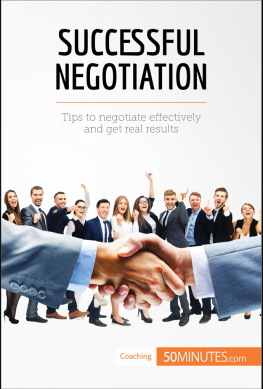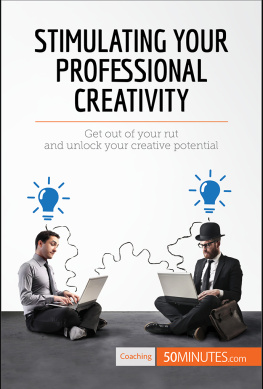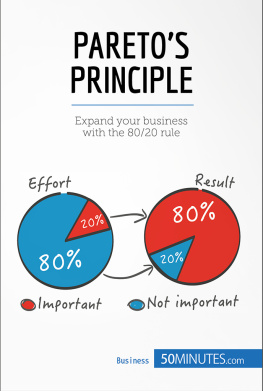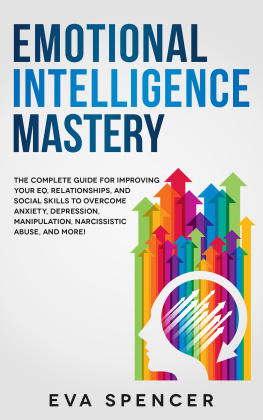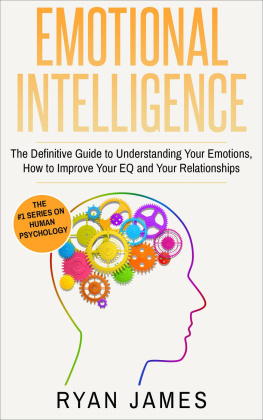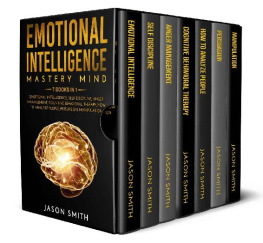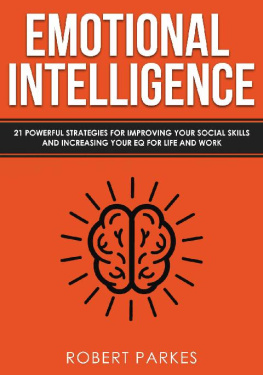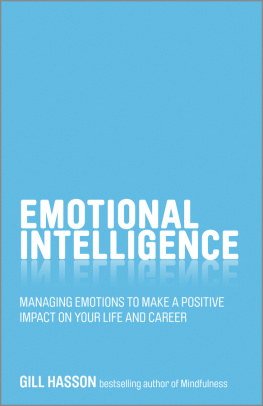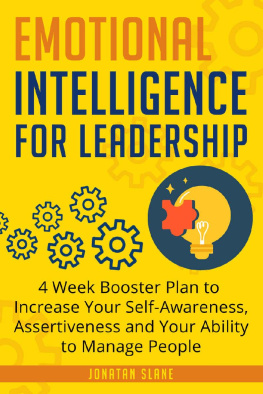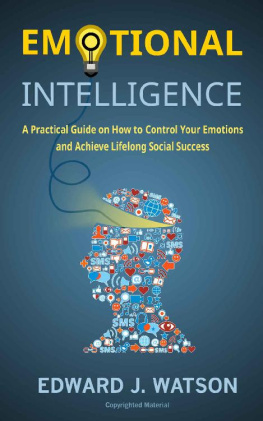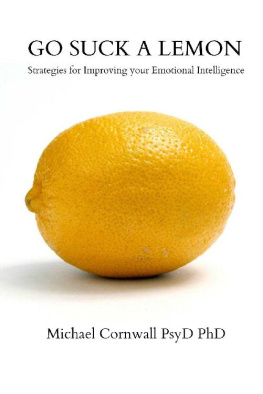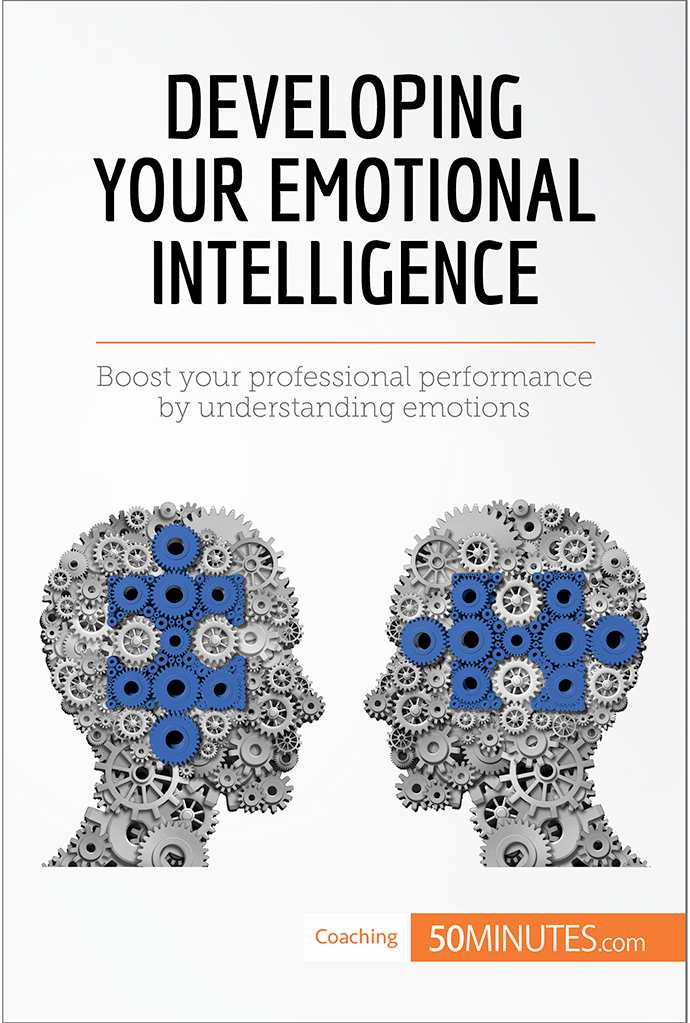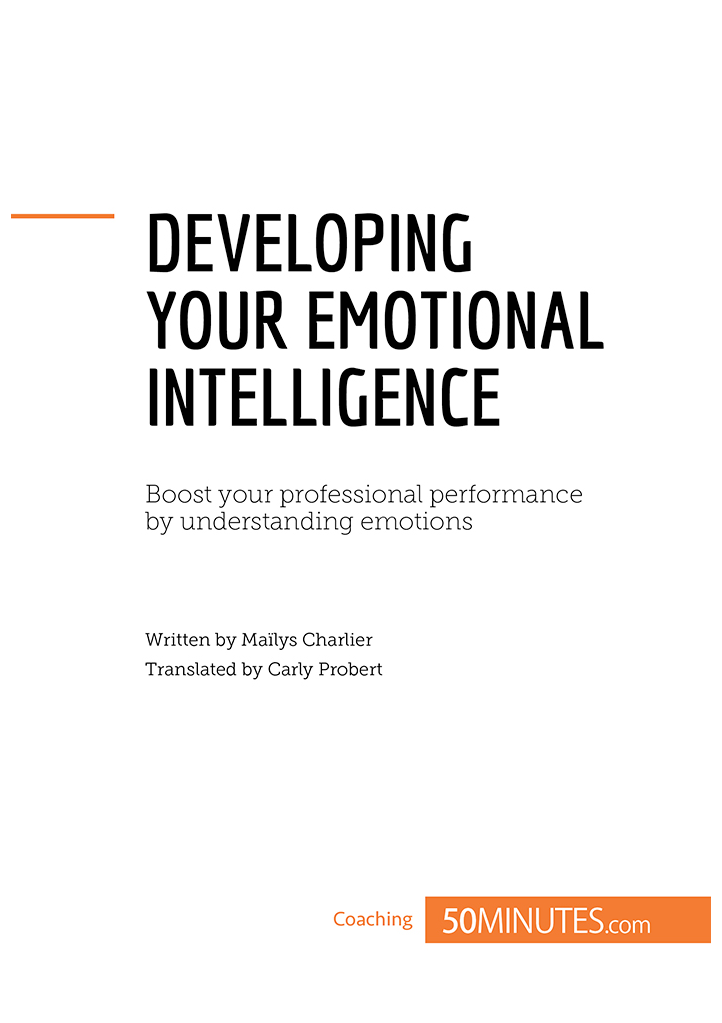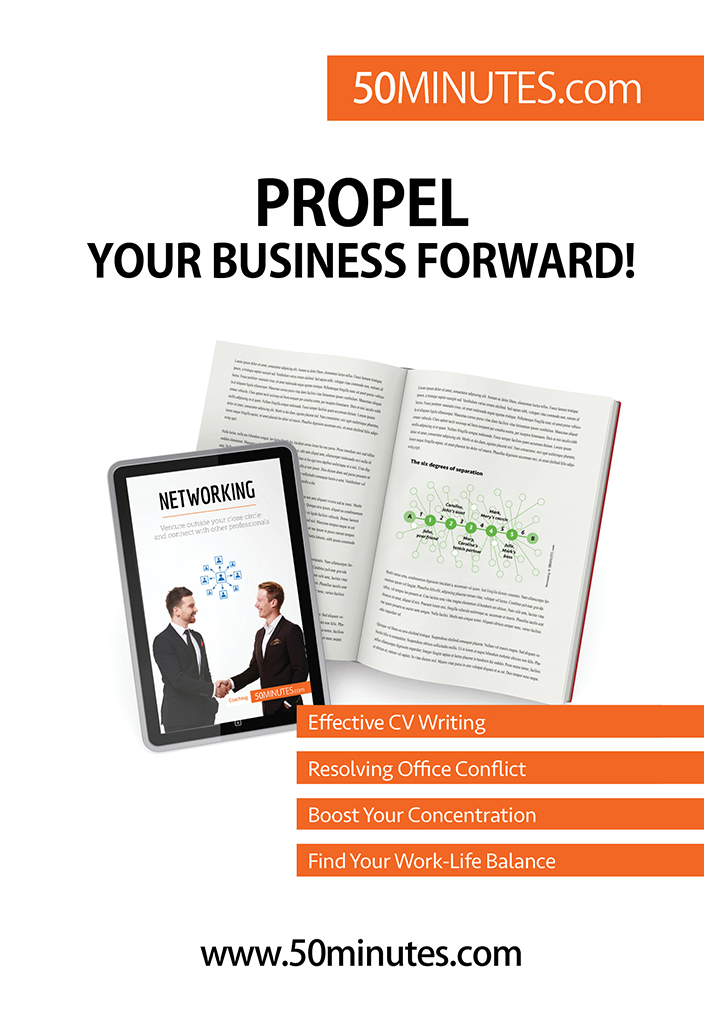Emotional intelligence
- Problem: How can I manage my emotions to maximise my potential and my chances for success?
- Uses: High emotional intelligence is a more certain path towards success than a large intellectual capacity.
- Professional context: Teamwork, team management, interviews.
- FAQs:
- What impact does stress have on my emotions and how can I handle it?
- Why is empathy an essential element of the development of my emotional quotient?
- What skills will enable me to grow within my company?
- How can I put a strong emotion, such as anger, to good use?
- How can I give constructive criticism to a co-worker?
- How can I use my emotions as a source of self-motivation?
In my previous job, I did not feel respected and I let the situation fester. I did not say anything until my supervisor pushed me too far one day while I was working a stand at an event and I exploded. I was unpleasant and I yelled at my superior in front of customers. She had pushed me so far over the edge for weeks leading up to that time, so I was unable to restrain myself and told her exactly what I thought. Two days later, I received my P45. Rachel, administrative assistant for a non-profit organisation
In 1996, the concept of emotional intelligence (EI) was popularised by the book of the same name by the American psychologist Daniel Goleman (born in 1946). He distinguishes between two kinds of intelligence: rational and emotional, measured by intelligence quotient (IQ) and emotional quotient (EQ) respectively.
According to Goleman, emotional intelligence is the ability [] to identify, access and control ones own emotions and those of others in a group. Therefore, emotional quotient measures the ability of an individual to use their personal skills (empathy, confidence, motivation, etc.) and social skills (communication, interpersonal relationships, etc.).
To the American psychologist, emotional quotient and intelligence quotient are not incompatible: they are simply two different ways of measuring the overall intelligence of an individual. As with a persons IQ, his theory assumes that we are born with a certain emotional quotient, with some emotional qualities and propensities inscribed in our genetic makeup. We are therefore not all equal in emotional intelligence. However, although it is very difficult to increase your IQ, there are several methods that you can use to increase your EQ. These methods not only help you to become aware of your own emotions and control them, but also to read those of others and act accordingly. Becoming emotionally intelligent is therefore within everyones reach.
Today, many people consider EQ to be just as important as IQ, particularly in the workplace. Indeed, Goleman adds that emotional intelligence means being able to manage feelings in order to express them appropriately and effectively, to allow others to collaborate harmoniously with common goals. Therefore, the better we are at managing our emotions (stress, sadness, anger, fear, etc.), the better we will interact with others. A team leader capable of great empathy will likely be able to reduce the stress of their employees, whilst filling them with energy: making good use of their emotions, they maximise their potential as a leader. Similarly, someone with a high emotional quotient will find it easier to work in teams. Goleman also states that emotional intelligence is not an addition to intellect, but multiplies it: it is the invisible, but decisive, factor in exceptional performance.
So, how can you control your emotions to maximise your potential and your chances for success? And how can emotional quotient be measured?
Emotional intelligence: the basics
What is emotional intelligence?
Origin and definitions
In 1983, Howard Gardner proposed his theory of multiple intelligences. Among these, he distinguished one form of intelligence related to relationships with others. This interpersonal or social intelligence allows the individual to act and react properly with others. [] It allows for empathy, cooperation, tolerance. [] This form of intelligence can solve problems relating to relationships with others; [] it is characteristic of leaders and organizers.
However, emotional intelligence was truly identified for the first time following the studies of Peter Salovey (born in 1958) and John D. Mayer (born in 1953) in the early 1990s. In their work, the two American psychologists defined emotional intelligence as a form of intelligence that involves the ability to control ones own feelings and emotions, and those of others, to distinguish between them and to use this information to guide their thoughts and actions.
Inspired by their research, Daniel Goleman (PhD in clinical psychology and personal development) introduced the concept to the general public in his book Emotional Intelligence (1996). In this book, he defines emotional intelligence as the ability [] to identify, access and control ones own emotions and those of others in a group. This definition was completed the following year by Salovey and Mayer, who described EI as the ability to perceive and express emotions, integrate to facilitate thought, understand and reason with emotion, as well as to regulate the emotions of oneself and of others. As for the term emotional intelligence, this emerged in the late 1990s with the work of Reuven Bar-On (born in 1944), who was the first to measure this kind of intelligence. This writer focused his reflection on the concept of yield and success potential, focusing on different emotional and social skills: self-awareness, understanding and expression, awareness of others, managing strong emotions, good conflict resolution and adaptability. He defines emotional intelligence as follows: Intelligence describes the aggregation of abilities, capabilities and skills []. The adjective emotional is used to emphasise that this specific type of intelligence differs from cognitive intelligence. For Bar-On, emotional intelligence is likely to be improved through training and therapy.
The Bar-On EQ-i
Bar-On set up the first test of emotional quotient, the Bar-On EQ-i , in 1997. Participants responded to 133 statements (In my daily life, my emotions often annoy me, I can easily tell if someone is lying to me, If I have a problem with somebody, I can easily talk to them, etc.) related to general life situations. Candidates had to answer using a scale from 1 to 5. After completing the questionnaire, the computer was able to calculate their emotional quotients based on five areas:
- intrapersonal skills;
- interpersonal skills;
- adaptability;
- stress management;
- overall mood.
Each point included five components such as assertiveness, stress tolerance, or impulse control.
Professional context
Later, Daniel Goleman developed the concept of emotional intelligence by exploring it in the workplace and educational environments. According to him, emotional intelligence promotes professional and personal success. He adds that emotional intelligence allows children to be less aggressive and, later, to make the right decisions. In his book, Emotional Intelligence at Work , he puts forward the concept of leadership resonance, which he defines as the ability to put ones team on the same emotional wavelength and transmit ones own optimism and enthusiasm [] as opposed to leadership of dissonance, which produces an emotionally toxic environment [].

